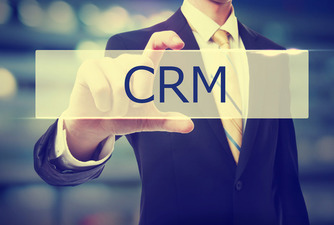Optimal Regions for Opening Online Casinos in 2025
The digital gambling field is growing rapidly. In terms of the attracted capital, it has already overtaken the land-based segment. The sphere is not going to slow down. Changes in taxation, the introduction of IT innovations, and the launch of new markets — all these aspects affect the steady growth of the gambling sector.

Rosloto presents an overview of 4 key regions for launching beneficial iGaming start-ups in 2025.
Latin America on the Threshold of Important Changes
This is a promising and profitable market that is already attracting multimillion-dollar contributions.
The amount of investments will grow even more when the leading countries of the region regulate their legislation. Today, the 2 largest economies, Brazil and Ecuador, are working on this.
Why It Is Worth Launching an Online Casino in the Region
The main advantages of working here are as follows:
- The rapid growth of the industry. While most of the leading markets have already reached their peak, the development of the gambling sector in Latin America is only gaining momentum. Innovative technologies (blockchain and artificial intelligence) are actively penetrating the field. This also contributes to the capitalisation of the industry.
- The popularity of gambling. All types of entertainment content are in demand here: sports betting, bingo, keno, lotteries, and online casinos. The leading positions are occupied by bookmakers (land-based and internet projects). Given the high popularity of team sports in Latin America, this area brings considerable profits to operators.
- The dense population of the region. The development of the Internet and wireless 4G and 5G networks makes it possible to reach every citizen. It does not matter if it is a bank employee from Brazilian Sao Paulo or a worker from the mountainous regions in Peru.
Top Regional Countries for Opening Gaming Start-ups
The territory is variegated in terms of legislation. In some states, all types of gambling are legalised, while in others, only national lottery operators are allowed to work.
Consider the features of launching gambling projects in local jurisdictions:
| The gambling field is regulated at the provincial level. Each region sets the rules for the operation of casinos, the level of the federal tax, and advertising restrictions. All types of gambling in the online and land-based sectors are developed in the country. The penetration rate of smartphones is 66%. This means that the main efforts of businessmen should be directed at launching mobile casinos or betting portals. The most popular province to obtain a licence is the Buenos Aires metropolitan area. Local regulator IPlyC became known for successful advertising contracts with industry giants William Hill, 888 Holdings, and Bet365 | |
| The country is called a sleeping giant, given its economic, technological, and labour potential. Investors expect a boom in the gambling market due to the legalisation of the field in Brazil. At the moment, only the national lottery is allowed in the country. It is actually in the hands of one operator — Caixa, associated with the Ministry of Finance. At the end of 2022, the Brazilian authorities introduced the gambling bill. The document is expected to come into force at the end of 2025. The key changes are the legalisation of all types of the gaming business, the obligation of operators to host servers within the country, and a high tax on winnings (20%) | |
| The region's 4th economy is demonstrating impressive growth in the gambling industry. The field was legalised in 2017. In just 5 years, the market has grown 10 times. The local regulator Colijuegos issues licences for all types of amusement and also controls the work of entrepreneurs through an online monitoring system. In 2022, the state revenue from gambling amounted to $175 million. According to experts, this figure will increase by another 27% in 2025 | |
| Chile | The country is at the final stage of legalising the gambling area. The law will come into force at the end of 2025. The planned changes will open the way for foreign capital and attract new investment in Chile. Today, only sports betting is allowed in the country. The niche is in the state monopoly |
| The popular offshore jurisdiction is famous for its low taxes and advanced IT infrastructure. The country does not issue licences. However, it does not prohibit the operation of iGaming platforms on its territory. The main condition is to accept bets only from foreign players. Over 450 offshore casinos are registered in Costa Rica. They are subject to regular taxes and bring decent profits to operators |
Asia as the World Centre of the Live Casino Industry

This is a diverse and promising region with good prospects for growth and business scaling.
The market is linked to well-known entertainment complexes in Macau and Singapore. They bring multi-million dollar returns to investors. The largest industry exhibitions and conferences are held here. Companies are actively investing in innovation and the construction of large casinos.
Benefits of Opening iGaming Start-Ups
You should pay attention to the Asian gambling market due to the following reasons:
- High density of labour and economic resources. The region is home to 60% of the world's population, which is concentrated in the largest metropolitan areas. In addition, Asia is visited by over 2 billion tourists annually. They are glad to spend money at local racetracks, casinos, and betting shops.
- The industry’s legalisation trend. In the last 5 years, the governments of many countries have revised their attitude towards gambling. For example, Vietnam is testing a pilot project for opening the gaming niche for residents. Before that, only tourists could visit casinos (both land-based and online projects). A similar situation is observed in Thailand. The gambling bill is at the final stage of development.
- Excellent growth potential. The legalisation of the field in particular countries, the huge influx of tourists, the increase in incomes of the population and the introduction of innovations create favourable conditions for market capitalisation. In 2022, the revenue in the casino games segment exceeded $1 billion. By 2025, this figure may increase 5 times.
Overview of Promising Countries for Investment
In 2025, the creation of an iGaming start-up in Asia will bring good income to its owner. It is possible to launch and scale a business in many countries of the region.
The Philippines
This jurisdiction is characterised by a well-developed gambling market, loyal taxation, and easy obtaining of a licence. The leaders of the global industry (for example, the EveryMatrix provider) successfully opened representative offices here. This also contributes to the market’s capitalisation.
Two gambling regulators operate in the Philippines:
- PAGCOR (it issues licences for land-based casinos and bingo halls, as well as betting shops);
- CEZA (it gives out permits for the operation of internet portals).
The cost of a licence is about $40,000, depending on the type of document. The high price is compensated by low tax rates. Entrepreneurs pay no more than 5% of GGR (gross gaming revenue). In addition, the country provides a concession period for new companies.
One of the most popular areas for investment is the launch of casinos with real dealers.
Top providers are licensed in the country. They offer live roulette, baccarat, Texas Hold'em, and blackjack. These are Asia Live Tech, SA Gaming, n2-LIVE, IDNPlay, HKB Gaming, and others. The firms manage state-of-the-art studios and rent halls in land-based casino complexes for 24/7 broadcasts.
Vietnam
The gambling industry of this country is focused on foreign players. Tourists have access to land-based and online casinos, bookmakers, and bets on horse races.
A pilot project for allowing digital and ground gaming establishments for the local population is under development. The first casino in the Van Don gambling zone opened under the new legislation is already accepting visitors.
It is expected that new gaming clubs will appear in the country in the Phu Quoc special zone soon. The authorities see good prospects for the development of the gambling area in the state.
India
This is one of the most promising markets for investment, even though the gaming field in the country is actually in the grey zone. India is a federation, therefore, the legality of entertainment is determined at the state level.
Gambling (online and land-based projects) is allowed in several regions:
- the union territory of Daman and Diu;
- the states Sikkim and Nagaland;
- the Goa Island.
In addition, state-owned lotteries and horse racing bets are permitted in the country. In the state of Goa, floating casinos operate. They represent all types of gaming under a special licence.
The Indian government is working on changing gambling laws. The authorities plan to take the gaming segment out of the grey zone by legalising it. This will increase budget revenues and attract tourists.
Popularisation of Casino Projects in Africa

For many years, the continent has been associated with technological backwardness and low living standards. However, in the last decade, everything has changed dramatically.
The economy of the region is actively developing, and new trading platforms and huge entertainment complexes are appearing. The interest towards Western values and gambling is growing.
Why You Should Open an Online Casino in the Region
The main benefits of launching an iGaming start-up in Africa are as follows:
- The popularity of mobile web connection. Three-quarters of the continent's population has SIM cards and access to high-speed Internet. In recent years, about a dozen 4G towers have appeared in Africa, giving rise to over 150 new mobile networks. Casino and betting entertainment for smartphones is the most promising area for investment in 2025.
- Moderate competition in the industry. The niche is filled only by 50%. Entrepreneurs have a great chance to open iGaming start-ups with a fast return on investment.
- High demand for gambling. All types of amusement activities are developed on the continent. The most popular options are sports betting and lotteries. Keno and bingo draws, as well as online casinos, have a good response from the audience.
Demanded Countries for Launching iGaming Portals
Attitudes towards gambling in Africa vary in different states. The toughest laws are in the North. Some Muslim countries prohibited gaming services.
In Algeria, for example, only the national lottery Pari Sportif Algerien (PSA) is allowed. It meets all Sharia requirements. The operation of online casinos is prohibited, as well as the use of VPNs.
Favourable conditions for launching and scaling iGaming businesses are provided in the southern and central parts of the continent.
It is possible to open a profitable online casino in the following countries:
| The RSA is the region's leader in many economic indicators, including gross gaming revenue. In 2022, GGR amounted to $2.5 billion. By 2025, this figure may exceed $4.8 billion. All types of gambling are developed in the country, including online casinos. The jurisdiction implies a high corporate tax (29%). Therefore, investors prefer to put their money into businesses rather than transfer their capital abroad. In South Africa, you will have to face red tape when applying for a licence. The fact is that the country is divided into 9 provinces. Each of them has a separate gaming legislation | |
| Uganda | This is one of the key gambling centres on the continent. About 670 registered companies are associated with online casinos, lotteries, and betting services. Uganda implies low licence fees. Entrepreneurs pay between $300 and $1,500 a year to renew a permit. The tax on gross gambling revenue is 20%. In addition, operators are required to conduct deductions from gamers’ prizes (15%) |
| Nigeria | This is Africa's second economy. The country has the largest population — 200 million. 30% of able-bodied residents place bets on sports every day. The same number of people visit online casinos. The gambling industry was legalised in 2013. Since then, the authorities have ordered the legislation in terms of issuing licences, resolving disputes between gamers and casinos, and attracting foreign capital |
Europe Confidently Applies Technological Innovation

The European gambling market grew by 8% in 2022 and amounted to €108.5 billion. According to analysts, the industry will raise even more in 2025, given the global trend towards the capitalisation of the digital economy.
Thus, the online media Mordor Intelligence suggests that during 2025–2026, the GGR of the sector will grow by 9.2%. The region is developing. It offers good opportunities for starting and scaling businesses.
Benefits of Opening Online Casinos
Consider the main advantages of working in the EU market:
- Active introduction of innovations. These are blockchain, artificial intelligence, VR and AR, as well as NFTs. The use of digital monetary units, for example, is allowed in the United Kingdom, Germany, and other leading economies. Malta issues licences for Bitcoin casinos. Most jurisdictions consider cryptocurrency as a method of settlement. When exchanging digital money for fiat units, entrepreneurs need to declare their earnings and pay income tax.
- The legalisation of gaming markets. Online casinos have been allowed to operate throughout Germany since 2025. Although earlier such projects could be opened only in a few federal states. The Slovak market is promising in terms of investment. It was opened to foreign capital only in 2019.
- Centuries-old gaming traditions. All types of gambling are well-developed in the region: casinos, bookmaker services, bingo, keno, and lotteries. Horse racing betting is a national heritage in England. The south of France is considered the birthplace of European single-zero roulette.
Overview of Promising Markets for Investment
It is possible to launch a profitable iGaming start-up in many jurisdictions:
Malta
The island country has become a Mecca for the gambling business in the EU. More than 700 entertainment companies are registered here. The prestigious SiGMA exhibition is taking place in this state. The authorities offer comfortable conditions for launching iGaming projects.
Malta is the first EU country to introduce clear legislation regarding the gambling sector and set a minimum fiscal burden on businesses. Entrepreneurs pay only 5% of the gross gaming revenues (the sum of punters' bets minus their winnings).
The benefits of working in Malta are as follows:
- stable legislation;
- low tax rates (operators are exempt from corporate and capital withdrawal fees, etc.);
- an extensive system of licences (it is possible to get permission to organise gambling activities or to produce casino software);
- the access to advanced IT infrastructure and highly qualified personnel;
- the demand for the Maltese licence in the global market.
Sweden
The Scandinavian state is characterised by stable growth rates. The country is the leader in terms of investment volume.
The gambling sector experienced massive changes in 2019. Two laws came into force then — the Gambling Act and the Gambling Ordinance. The government allowed the operation of online casinos and bookmaker sites. Additionally, entrepreneurs can accept bets on any event, including virtual and non-sports tournaments.
The cost of a gambling licence is €40,000. The document is issued for 5 years. Operators pay 18% of GGR. However, such high taxes are common throughout Scandinavia.
Permits are issued by the Swedish Gaming Commission (Spelinspektionen).
The leading casino software developers are registered in the country:
- NetEnt;
- ELK Studios;
- Play'n Go;
- Yggdrasil, and others.
Centuries-old gambling traditions have been formed in Sweden. Also, the game creation department has been opened at Linnaeus University.
Estonia
The country's economy, including the amusement industry, is developing at a rapid pace. The sector has been regulated since 2008 when the Gambling Act was signed.
All types of entertainment solutions are allowed in Estonia, including bets, bingo, keno, and casinos. There is only one state monopoly, Eesti Loto. It owns the right to conduct draws.
The legal minimum age differs depending on the type of gambling:
- sports betting is allowed for punters over 18 years old;
- online casino games are available for users of 21+;
- lotteries are accessible to people of 16+.
The high cost of obtaining a licence (€47,940 for an internet casino) is compensated by low taxes. Entrepreneurs pay only 5% of GGR. The rate is fixed. It does not change depending on the operator's income for the reporting period.
Sports, cultural, and educational projects, health care and social support programs for people with disabilities are financed from tax revenues.
The Main Things about Opening iGaming Start-ups in 2025
The list of promising gambling markets includes Latin America, Asia, Africa, and Europe.
- The first one is an up-and-coming region with several large economies: Brazil, Argentina, and Colombia. The authorities are working on optimising legislation and launching the gambling market. The industry has been operating legally in Colombia for several years.
- Asia is known for the great popularity of live games and large entertainment complexes in Macau and Singapore. Favourable conditions for launching an online casino have been created in the Philippines. The local regulator has developed transparent licensing conditions. It offers a minimal fiscal burden on businesses.
- South Africa, Uganda, and Nigeria stand out in the African market. These jurisdictions are characterised by legal gambling activities and high penetration of mobile devices. The African industry is filled only by 50%. Entrepreneurs have a chance to open profitable casinos and take a leading position in the niche.
- In the European market, it is worth paying attention to developing economies: Estonia, Sweden, Slovakia, and other countries. Malta takes the lead in terms of the capital raised and the number of registered companies. Convenient conditions for licensing have been created here. A modern IT infrastructure has been built. Preferential tax rates are available to operators.
You can order a profitable iGaming start-up at the Rosloto studio. We implement projects of any complexity:
- turnkey online casinos;
- White Label platforms;
- Bitcoin start-ups;
- bookmaker sites, etc.
We will help you with creating a business plan, obtaining a licence, launching, and promoting your start-up. Contact our managers to start a lucrative partnership.
Check the information used to contact us carefully. It is necessary for your safety.
Fraudsters can use contacts that look like ours to scam customers. Therefore, we ask you to enter only the addresses that are indicated on our official website.
Be careful! Our team is not responsible for the activities of persons using similar contact details.
















